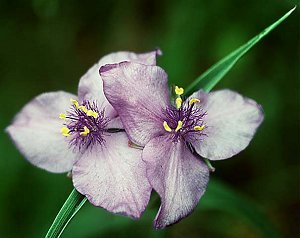Wisconsin’s Healthy Grown Program Champions Ecological Restoration on Farms
Ecological restoration is a process for recovering an ecosystem or natural community that has been damaged or destroyed. Agricultural landscapes present a great opportunity to identify damaged natural communities that coexist within working agricultural land.
Potato growers in the Wisconsin Healthy Grown Program voluntarily work with an ecologist to identify remnants of natural ecosystems on their farms and commit to long term practices that will restore these to their natural condition. These projects require a significant investment from growers, but they have already resulted in the restoration of 500 acres across the Central Sands region.
Nick Somers (Plover River Farms, Stevens Point, WI), a grower who is restoring forested wetlands on his farm, knows that stewardship and responsible management of the land is important for landowners. Somers says “people need to realize that the majority of land in Wisconsin is privately owned—and most of it is for agricultural use. We need to manage our lands to protect that balance in agriculture. ”
 However, ecological restoration is a time-intensive process and requires a long-term commitment. Alison Duff, a researcher and Ph.D. candidate with the UW Institute for Environmental Studies, notes that “The greatest challenge in expanding conservation efforts in working landscapes is in recognizing the diversity that exists within the agricultural community, meaning that conservation efforts on private agricultural lands need to be adaptive to the ecological and economic reality of the farm in question.”
However, ecological restoration is a time-intensive process and requires a long-term commitment. Alison Duff, a researcher and Ph.D. candidate with the UW Institute for Environmental Studies, notes that “The greatest challenge in expanding conservation efforts in working landscapes is in recognizing the diversity that exists within the agricultural community, meaning that conservation efforts on private agricultural lands need to be adaptive to the ecological and economic reality of the farm in question.”
As a result, restoration projects vary from farm to farm with active restorations ongoing in wetlands, prairies, oak and pine barrens, and oak savannas. The results are worth it with Emily Acer (UW Environmental Resources Center, 2009) reporting that “restored natural communities managed through the Healthy Grown program offer significant reservoirs of biodiversity, native habitat, and increased ecosystem services.” These services benefit us all through the water infiltration and flood control provided by wetlands, soil stabilization and carbon sequestration provided by perennial vegetation, natural pest control (for example, insects and birds that prey on agricultural pest species), and recreational opportunities, such as hiking, hunting and fishing.
